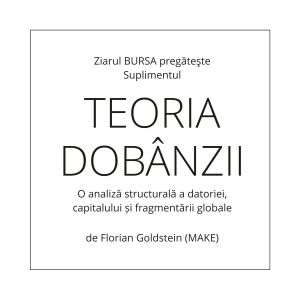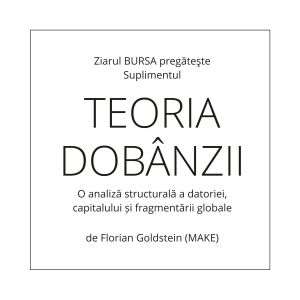• According to the ECA audit of the EU budget last year, the additional costs for Next Generation EU loans will be between 17 and 27 billion euros • To finance this mechanism, the EU has borrowed 268.4 billion euros so far
The additional costs for loans related to the Next Generation EU mechanism put additional pressure on the budget of the European Union, through the lens of contracted loans, say the auditors of the European Court of Auditors (ECA), in the report published last night on the expenses incurred by the community bloc in 2023.
According to the cited document, the additional costs for Next Generation EU related loans are estimated at a total value between 17 billion euros and 27 billion euros, which puts additional pressure on the EU budget, as it is about loans. ECA's auditors argue that these loans increase the financial exposure of the Union and draw attention to the risk that these debts will become a burden on future budgets if they are not properly managed.
Regarding the increase in the debt and financial exposure of the EU, according to the cited source, last year the EU debt reached 458.5 billion euros, being 32% higher than in 2022 (when it was known at 348 billion euros). The ECA shows that this increase in the debt of the community bloc was mainly determined by the loans contracted to finance the Next Generation EU, which reached 268.4 billion euros. Thus, the EU has become one of the largest issuers of debt at European level, which raises questions about its ability to manage these financial obligations in the long term.
• Increases the number of errors regarding the spending of European funds
Another issue noted by ECA auditors is the increase in the estimated error rate for EU budget spending, which reached 5.6% (euro191.2 billion) in 2023, compared to 4.2% in 2022 and 3 .0% in 2021.
In the press release published yesterday by ECA together with the audit report on the EU budget for the past year, it is specified regarding the respective error rate: "This is worrying. In addition, there are irregularities affecting some of the euro48 billion spent through the Recovery and Resilience Mechanism, the main pillar of the EU's NextGeneration post-pandemic recovery package. Auditors detected cases where payments were made even though not all the necessary conditions were met. In addition, the national control systems were deficient".
According to European auditors, errors are particularly concentrated in spending on cohesion policy, where the error rate reached 9.3% in 2023, compared to 6.4% in 2022 and 3.6% in 2021. This suggests pressure growing pressure on national administrations to quickly absorb European funds, which led to their improper use. The increase in the level of error is closely related to the complexity of the rules that Member States have to follow when managing cohesion funds and other programmes, which leads to difficulties in the effective implementation of funded projects.
Particular attention in the report is given to the Recovery and Resilience Mechanism (RMR), the EU's main financial support tool for post-pandemic economic recovery. The European Court of Auditors report points out that in 2023, around a third of payments made through the MRR did not comply with the applicable rules and conditions. The auditors identified numerous deficiencies in the national control systems that managed the MRR funds, as well as irregularities in meeting the milestones and targets required to access the funds. These shortcomings include both errors in the design of targets and the lack of reliability in Member States' reporting. Thus, it mentions the risk that similar types of errors can be found in other European programmes, such as those for cohesion, since the same national bodies control the funds. Another important point highlighted in the report is that, unlike regular Structural Funds, MRR payments do not require compliance with EU and national rules as a precondition. This creates additional risk as there is no systematic compliance check before payments are made.
• Impact of the war in Ukraine and associated risks
The quoted source shows that Russia's war of aggression against Ukraine had a significant impact on the EU budget. Financial aid to Ukraine has doubled in 2023 to euro33.7 billion, compared to euro16 billion in 2022. This financial support is essential to sustain Ukraine, but at the same time it adds additional pressure to the European budget. In addition, the auditors warned that risk default on repayment obligations could put even greater pressure on future budget exercises.
The ECA says a worrying aspect is related to the Ukraine Facility, which was created in 2024 to provide additional support, in the form of loans, worth euro33 billion. These credits do not require provisioning, which, according to European auditors, raises the risk of possible long-term financial losses if repayment is not made as expected.
Against all the above, the ECA auditors state that the European Union must strengthen its financial governance structures and ensure a more efficient and transparent use of funds. This will be essential not only for maintaining the trust of European citizens, but also for protecting future budgets and supporting the objectives of cohesion and economic recovery.







































